Harmony Through Use of One Color on Different Art Elements Location Definition in Art
Art Professional Development that Fills Your Soul 🎨 ❤️
Art connection is more than making a copycat version of an artwork. It'south looking at fine art, talking most art, sitting with art that sparks something inside you, finding the places where information technology interacts with your own life, listening to what it says about the world, and finding your ain interpretation and meaning. This summer, we're getting together for the Curated Connections Experience so we can feel and teach the power of art. Learn More
In this post from the elements and principles of fine art serial on Art Class Curator, encounter varying examples of unity in fine art. From harmony with shape to unity using texture, find all of your unity in art examples in ane place!
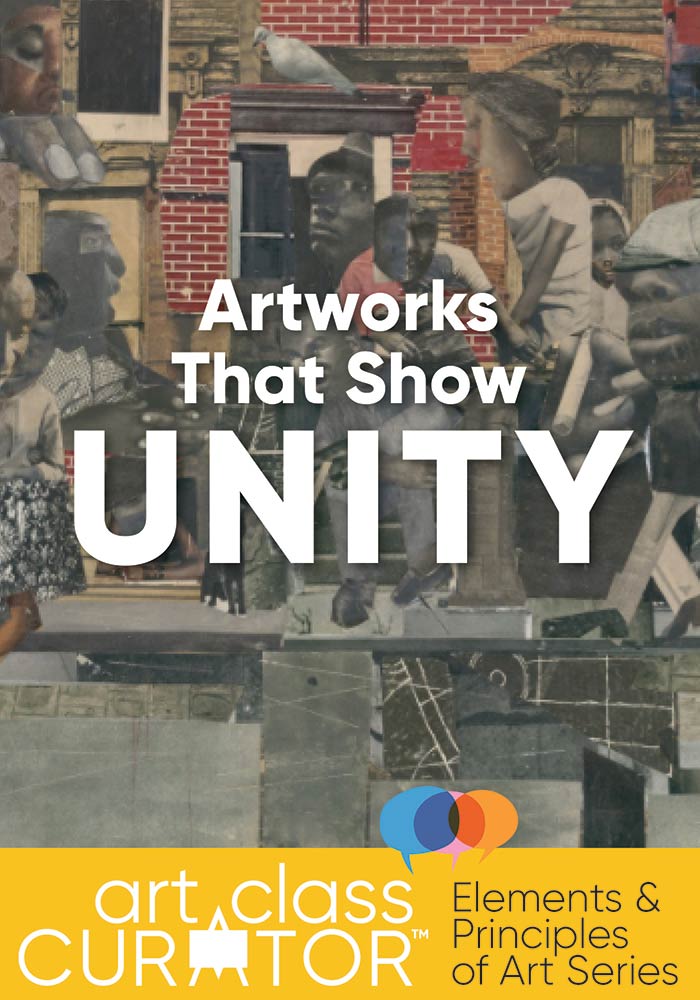
Unity in Fine art
Unity (also called harmony) is an important principle of design that gives the artwork a sense of cohesion or coherence. It is the wholeness or completeness of a picture. Unity and harmony in fine art are used by artists to necktie a composition together and assistance the limerick make sense every bit a whole piece of art.
The principles of design are ways to organize the elements of art (line, shape, color, form, space, value, texture) to create a wide range of effects. To create unity or harmony in art, artists accommodate the similar components and elements of art to create consistency. Unity or harmony can also be created by merging the form and the pregnant of the artwork together.
Unity and multifariousness in fine art are oft discussed together, because ultimately an artwork must contain both unity and diverseness to be a successful work of art, and there must be residual between the two.
"The essence of the beautiful is unity in variety." – William Somerset Maugham
Unity tin be very subtle when done well. A unified artwork will merely look right, complete, and pleasing. Principles of art unity is not necessarily just a repetition of the same chemical element over and over once again, but it is the pleasing combination of elements to create the big picture.
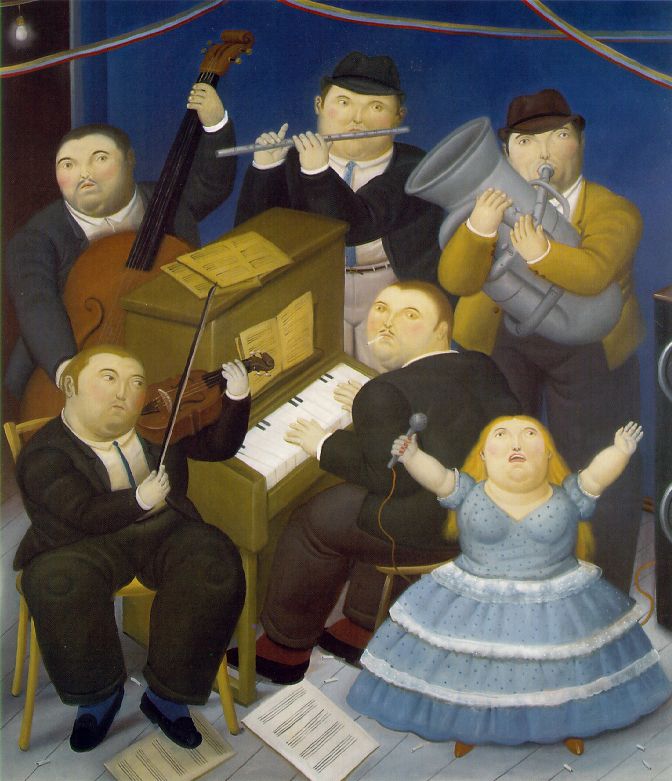
Botero creates unity in The Musicians with grade, shape, colour, line, and infinite.
Download the Free Elements and Principles Printable Pack

This pack of printables was designed to work in a diverseness of ways in your classroom when teaching the elements and principles of art. You lot tin print and hang in your classroom as posters/anchor charts or you tin cut each element and principle of art in its own individual menu to use as a lesson manipulative.
Examples of Unity in Art Using Shape/Course

- Gustav Klimt, The Buss, 1907–08
- Wassily Kandinsky, Circles in a Circle, 1923
- Gustave Caillebotte, Fruit Displayed on a Stand up, 1881
- Piet Mondrian, Broadway Boogie Woogie, 1942
- Salvador Dali, Galatea of the Spheres, 1952
- Caspar David Friedrich, The life stages (beach moving-picture show, embankment scene in Wiek), ca. 1834
- Kara Walker, Insurrection! (Our Tools Were Rudimentary, Still We Pressed On), 2000
- Rene Magritte, Golconda, 1953
- Georges Seurat, A Sunday on La Grande Jette, 1884

- Duccio di Buoninsegna, The Maestà, 1308-1311
- Fernando Botero, The Musicians, 1991
- Giuseppe Arcimboldo, Spring, 1573
- Romare Bearden, The Dove, 1964
Examples of Unity in Fine art Using Color

- Jasper Johns, Nothing-Nine, 1960
- Pablo PIcasso, The Quondam Guitarist, 1903-04
- Johannes Vermeer, The Art of Painting, 1665-68
Examples of Unity in Art Using Texture

- Claude Monet, Rue Montorgueil in Paris, 1878
- Dante Gabriel Rossetti, Lady Lilith, 1868 (altered 1872-73)
- Paul klee, Advertizement Parnassum, 1932
- John Biggers, Baptism, 1989
Examples of Unity in Art Using Line

- Ben Shahn, Supermarket, 1957
- Aubrey Beardsley, The Peacock Skirt, 1893
- John Vocaliser Sargent, White Ships, circa 1908
- Pablo Picasso, The Dance of Youth, 1961
- Marcel Duchamp, Nude Descending Staircase, 1912
- Jose Diego Maria Rivera, Saccharide Cane, 1931
Examples of Unity in Art Using Style

- Edvard Munch, The Scream, 1893
- Roy Lichtenstein, Explosion from 9, 1967
- Keith Haring, Untitled, 1988
- Paul Cezanne, Mont Sainte-Victoire, 1904-06
- Shen Zhou, Return from a Thousand Li, ca. 1480
- Vincent Van Gogh, Wheatfield with Crows, 1890
- Wayne Thiebaud, Pigment Cans, 1990
Examples of Unity in Fine art Using Architecture

- Athens, Greece, Parthenon, 447 BC – 432 BC
- Rome, Italian republic, Colosseum, 70-lxxx Ad
- Frank Lloyd Wright, The Guggenheim Museum, 1937
Principles of Art Unity Related Resources
- This article from the Natomas High Schoolhouse Design Section includes more definitions of how to use unity in art.
- Teach harmony and unity in art with a game.

Elements and Principles Educational activity Bundle
This extraordinary bundle includes the best resources for teaching each of the elements and principles—37 worksheets/handouts, xv lessons (with accompanying PowerPoints and Handouts), 3 ready-to-go art assay activities, 3 art analysis videos, and 13 elements and principle PDF manufactures.
There you lot accept it! The best examples of unity in art for your elements and principles of fine art lessons. Want more than elements and principles of fine art teacher resource? Check out the below posts.
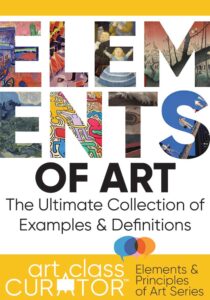
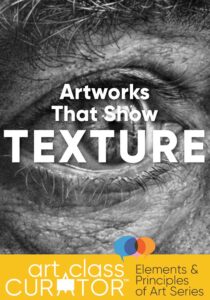
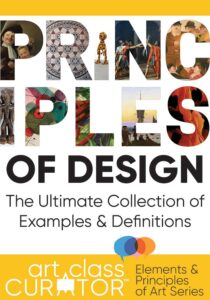
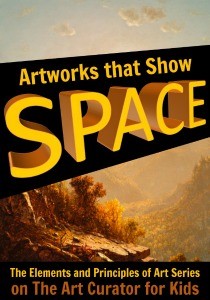
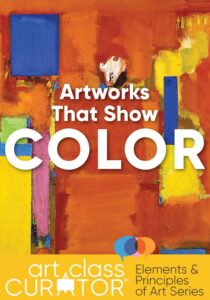
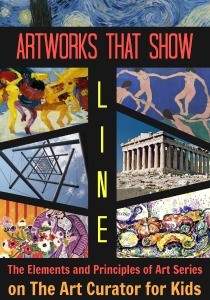
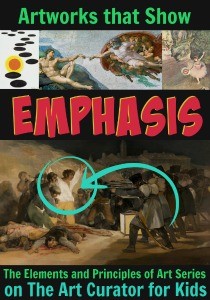
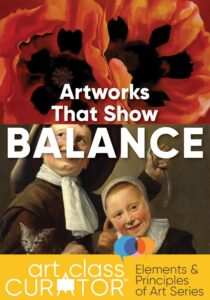
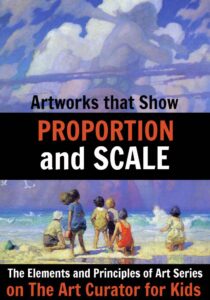
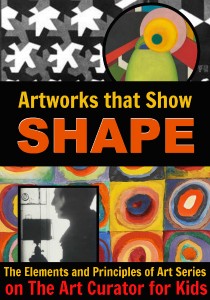
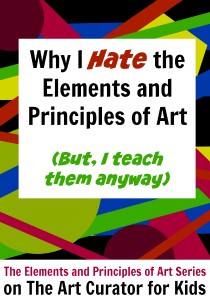
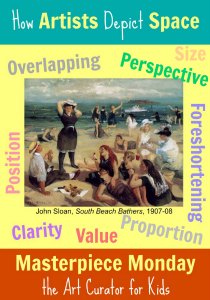
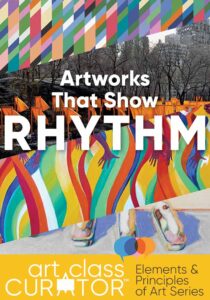
Y'all May Also Savor These Posts:
Reader Interactions
Source: https://artclasscurator.com/examples-of-unity-in-art/

0 Response to "Harmony Through Use of One Color on Different Art Elements Location Definition in Art"
Post a Comment